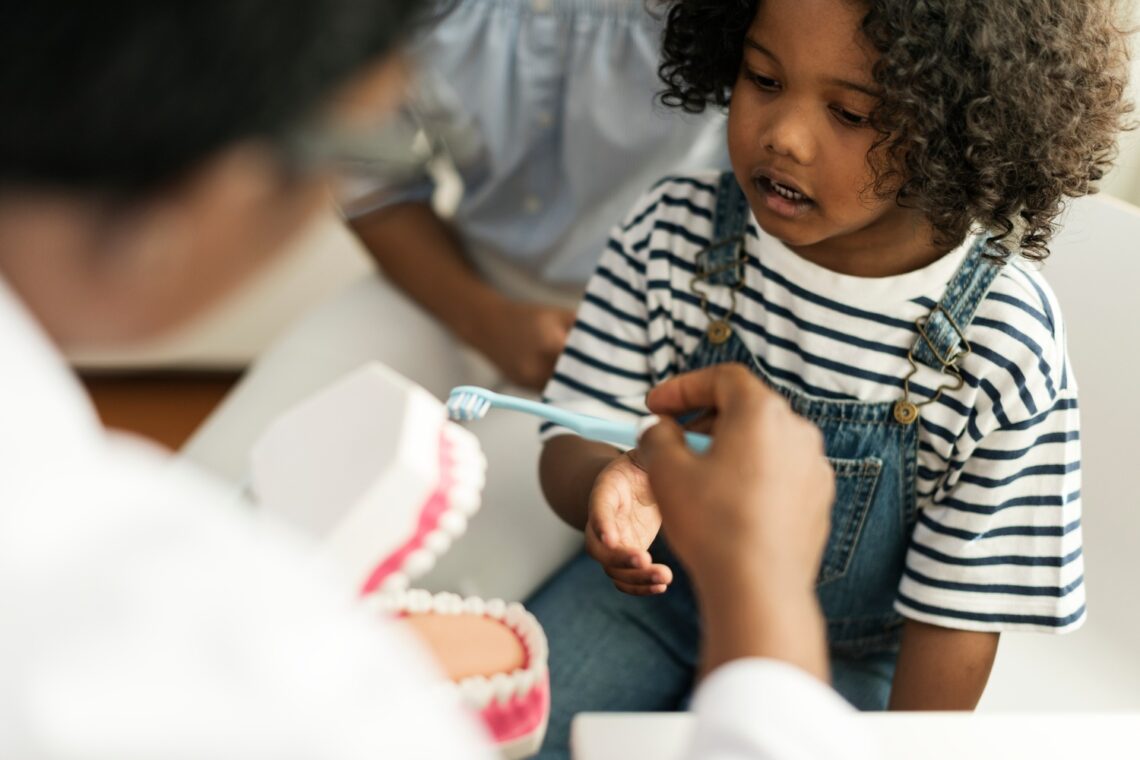
When Should Kids Start Going to the Dentist? The Ultimate Dental Health Guide
Maintaining oral health is a cornerstone of overall wellness, and for children, establishing good dental habits early can set the stage for a lifetime of bright smiles. Yet, many parents wonder: when is the right time for a child’s first dental visit? The answer isn’t always intuitive, but it holds the key to preventing future dental complications. This comprehensive guide explores the ideal timeline for introducing kids to dental care, the benefits of early visits, and practical advice for making the experience positive for both children and parents. So let’s get into it: when Should Kids Start Going to the Dentist?
Key Insights:
- Schedule a child’s first dental visit by their first birthday or when the first tooth erupts.
- Early dental visits help prevent tooth decay, gum issues, and anxiety about oral care.
- Preventive dental care fosters lifelong healthy habits and reduces long-term dental costs.
- Positive experiences during checkups build trust and encourage stress-free visits as children grow.
Why Early Dental Visits Matter
The foundation of lifelong dental health begins in childhood, often sooner than many realize. According to pediatric dental experts, children should visit a kids dentist by their first birthday or within six months of their first tooth erupting. This recommendation is more than a guideline; it’s an essential step in preventing common oral health problems and fostering a positive relationship with dental care.
Early oral checkups allow dentists to monitor the growth and development of a child’s teeth and gums. For example, conditions such as baby bottle tooth decay or early gum disease can be identified and addressed before they escalate into more serious issues. Additionally, these visits provide parents with valuable guidance on proper oral hygiene practices tailored to their child’s age and developmental stage.
Moreover, introducing children to the dentist early helps reduce dental anxiety—a common issue that can persist into adulthood. Normalizing oral checkups during formative years helps children approach future appointments with greater confidence and ease.

The Timeline of Childhood Dental Care : When Should Kids Start Going to the Dentist?
Understanding the stages of dental development is crucial for timing oral checkups appropriately. Here’s a breakdown of key milestones in a child’s oral health journey:
1. Infancy (0-12 Months)
The eruption of the first tooth—usually around six months—marks the beginning of dental care. During this stage:
- Schedule the first dental appointment as soon as the first tooth appears or by the child’s first birthday.
- Begin cleaning the teeth using a soft-bristled toothbrush and water.
- Avoid putting babies to bed with bottles, as prolonged exposure to milk or juice can lead to tooth decay.
2. Toddlerhood (1-3 Years)
At this stage, children develop more teeth, and their diet expands. Just as a toddler’s physical exam assesses overall health, dental checkups monitor the alignment and spacing of teeth. Regular oral visits become essential to:
- Monitor the alignment and spacing of teeth.
- Provide fluoride treatments if necessary to strengthen enamel.
- Educate parents on managing habits such as thumb-sucking or pacifier use, which can affect dental alignment.
3. Preschool and Early School Years (4-6 Years)
This period involves a mix of baby and permanent teeth. During these years:
- Dentists track the transition from primary to permanent teeth.
- Sealants may be applied to prevent cavities in molars.
- Children should be encouraged to brush and floss independently under parental supervision.
Each stage of a child’s dental development provides an opportunity to instill healthy habits and prevent potential issues. Staying proactive and attentive to these milestones helps parents lay the groundwork for their child’s long-term oral health.
The Benefits of Preventive Dental Care
Preventive dental care is a cornerstone of pediatric dentistry, offering numerous advantages that go beyond cavity prevention. Here’s how early and consistent care benefits children:
- Early Detection of Issues: Regular oral checkups ensure that problems like misaligned teeth, bite issues, or enamel defects are caught early. Addressing these issues promptly can prevent the need for more invasive treatments later on.
- Education on Oral Hygiene: Dentists provide age-appropriate instructions on brushing, flossing, and maintaining a balanced diet. Teaching children the importance of oral care fosters responsibility and sets them up for success in managing their health.
- Cost-Effectiveness: Preventing dental problems is often far less expensive than treating them. For example, sealing a molar to prevent cavities costs significantly less than filling or extracting a decayed tooth.
- Improved Self-Confidence: Maintaining healthy teeth and gums helps children feel more confident in their appearance. A bright smile can positively impact their social interactions and self-esteem, particularly as they grow older.
- Establishing a Routine for Lifelong Health: Preventive care fosters a sense of discipline and routine in managing oral hygiene. These habits often carry over into adulthood, reducing the risk of serious dental issues later in life.
- Strengthening Parent-Child Collaboration: Engaging parents in preventive care promotes teamwork in maintaining a child’s oral health. Parents who actively participate in their child’s dental care set an example of responsibility and health-conscious living.
A commitment to preventive dental care goes beyond immediate benefits; it lays the groundwork for a lifetime of oral health. Addressing potential issues early and educating families ensures that preventive dentistry helps children enjoy happy, bright smiles for years to come.
How to Make Dental Visits Positive for Kids
Creating a positive dental experience can significantly influence a child’s attitude toward oral health. Here are practical strategies for ensuring a smooth and enjoyable visit:
1. Choose a Pediatric Dentist
Pediatric dentists specialize in working with children, providing an environment designed to make young patients feel at ease. Their training includes techniques to manage children’s behavior and minimize fear. Offices often feature bright, colorful decor, toys, and entertainment to create a child-friendly atmosphere, making the visit feel less clinical and more enjoyable.
2. Role-Play Dental Visits
Before the appointment, simulate a dental checkup at home. Let your child play the role of the dentist and the patient, using a toothbrush and mirror to make the process familiar. This playful approach helps demystify the experience and can reduce apprehension. Role-playing also opens the door for parents to explain what happens during a real dental visit in a fun, non-threatening way.
3. Use Positive Language
Avoid using words like ‘pain,’ ‘shot,’ or ‘drill.’ Instead, frame the visit as an exciting opportunity to learn about keeping their teeth strong and healthy. Emphasize positive outcomes, such as having shiny, clean teeth or earning praise for their bravery. Parents can also share their own positive dental experiences to further reassure the child.
4. Reward and Encourage
After the visit, celebrate your child’s bravery with a small reward, such as a sticker, a favorite snack, or extra playtime. Positive reinforcement helps associate oral checkups with enjoyable outcomes. It’s also helpful to praise specific behaviors, such as sitting still or following the dentist’s instructions, to encourage these actions in the future.
5. Familiarize the Child with Dental Tools
If possible, introduce your child to common dental tools in advance, such as a small mirror or toothbrush. This familiarity can reduce fear of the unknown. Some pediatric dental offices even offer pre-appointment tours, allowing children to see the equipment and meet the staff beforehand. This proactive step builds trust and eliminates many of the uncertainties that contribute to anxiety.
Creating a positive experience at the dentist’s office can shape a child’s perception of oral care for years to come. When visits are enjoyable, children are more likely to view dental care as a normal, non-threatening part of their routine.

Common Challenges and How to Overcome Them
Even with the best preparation, some children may resist or fear oral checkups. Addressing these challenges head-on can make a significant difference.
1. Managing Anxiety
Dental anxiety is common in children and often stems from fear of the unknown. To address this, start by having an open conversation with your child about their concerns. Pediatric dental offices are well-equipped to handle anxious patients, often using techniques such as distraction, gentle explanations, or visual aids. Simple steps like allowing your child to bring a comfort item, such as a favorite toy, can also help alleviate stress. For children with more severe anxiety, some dental offices offer sedation dentistry, ensuring a calm and positive experience.
2. Handling Resistance
Resistance to oral checkups may occur, especially in younger children who are unfamiliar with the environment. Parents can counter this by framing oral checkups as an adventure or an opportunity to learn something new. In cases where resistance persists, dentists trained in pediatric care often use child-friendly language and techniques to gently guide the child through the process. Approaching these situations with patience and clear communication often leads to better outcomes.
3. Building Trust Over Time
Consistency in oral checkups plays a pivotal role in overcoming fear and resistance. Scheduling regular checkups with the same dentist allows your child to build a relationship with the dental team. Familiarity with the office environment, routines, and staff promotes comfort and assurance. Over time, what was once a source of fear becomes a routine experience, making future visits easier for both the child and the parents.
Overcoming challenges in children’s dental care requires a combination of preparation, patience, and support. Addressing concerns thoughtfully and working collaboratively with dental professionals helps parents guide their children toward embracing dental care as an integral part of their health journey.
Conclusion
Starting oral checkups early and maintaining regular appointments are pivotal steps in ensuring a child’s lifelong oral health. From the first tooth to the transition to permanent teeth, each stage of development presents unique opportunities to instill good habits and prevent future problems. Partnering with a trusted kids dentist and actively supporting their oral care journey equips children with the tools they need for healthy, confident smiles that last a lifetime.
Welcome to my blog! I am an activity mom of three and I have over 15 years of experience crafting, writing, designing and creating. My mission is to bring fun, balance and learning to your busy homes with activities, tips, inspiration, and organization!






